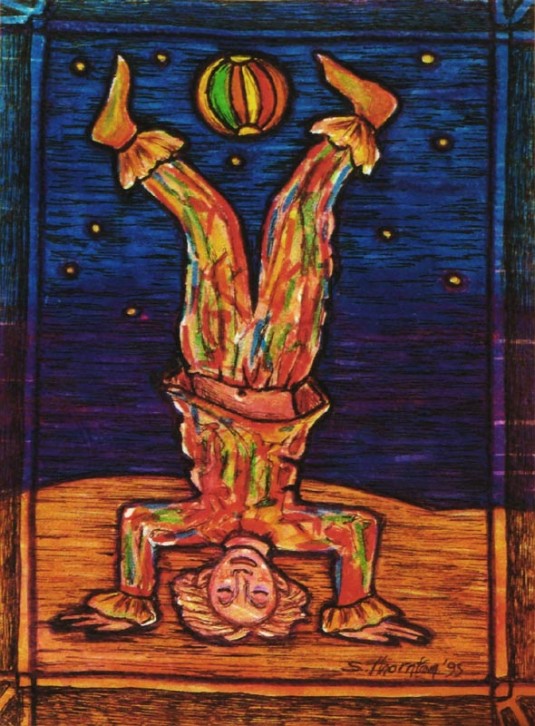Solemnity of Christ The King
November 20, 2011
Reading I: Ezekiel 34:11-12, 15-17
Responsorial Psalm: 23:1-2, 2-3, 5-6
Reading II: 1 Corinthians 15:20-26, 28
Gospel: Matthew 25:31-46
Jesus said to his disciples:
"When the Son of Man comes in his glory,
and all the angels with him,
he will sit upon his glorious throne,
and all the nations will be assembled before him.
And he will separate them one from another,
as a shepherd separates the sheep from the goats.
He will place the sheep on his right and the goats on his left.
Then the king will say to those on his right,
'Come, you who are blessed by my Father.
Inherit the kingdom prepared for you from the foundation of the world.
For I was hungry and you gave me food,
I was thirsty and you gave me drink,
a stranger and you welcomed me,
naked and you clothed me,
ill and you cared for me,
in prison and you visited me.'
Then the righteous will answer him and say,
'Lord, when did we see you hungry and feed you,
or thirsty and give you drink?
When did we see you a stranger and welcome you,
or naked and clothe you?
When did we see you ill or in prison, and visit you?'
And the king will say to them in reply,
'Amen, I say to you, whatever you did
for one of the least brothers of mine, you did for me.'
Then he will say to those on his left,
'Depart from me, you accursed,
into the eternal fire prepared for the devil and his angels.
For I was hungry and you gave me no food,
I was thirsty and you gave me no drink,
a stranger and you gave me no welcome,
naked and you gave me no clothing,
ill and in prison, and you did not care for me.'
Then they will answer and say,
'Lord, when did we see you hungry or thirsty
or a stranger or naked or ill or in prison,
and not minister to your needs?'
He will answer them, 'Amen, I say to you,
what you did not do for one of these least ones,
you did not do for me.'
And these will go off to eternal punishment,
but the righteous to eternal life."
There's not much point in pursuing the image of Jesus as king, in this age when kings have passed their use-by date and become figureheads or museum pieces. The prophets in the Old Testament showed their dissatisfaction with the kings of their time, and directed Israel to see the Lord as their only king. But when Jesus was confronted on the issue by Pilate, he certainly did not reject the title:
Now Jesus stood before the governor, and he questioned him, “Are you the king of the Jews?”* Jesus said, “You say so.” (...) Weaving a crown out of thorns,
[the soldiers] placed it on his head, and a reed in his right hand. And kneeling
before him, they mocked him, saying, “Hail, King of the Jews!” (Mt 27, 11,29)
In fact Jesus turned the idea of kingship on its head: he is the upside down king.

The gospel passage is very difficult. It begins with the awesome
scenario of a Final Judgement of all Nations, and then moves quickly to a
pastoral image of a shepherd gathering in his flock of sheep and goats
at nightfall. He has to separate them because, while the sheep will be
safe in the open sheepfold, the goats will need to be sheltered from the cold night air.
Jesus seems to stop short of this step, moving instead to a judgement of his flock, adopting the image of the sheep as nice and the goats as stupid. We began with the Nations gathered for judgement, and now we seem to be looking at our performance as individuals.
The six categories on which we are judged: hungry, thirsty,
stranger, naked , ill, in prsion, seem to echo the six categories of
Beatitudes that opened Matthew's gospel: poor in spirit, those who mourn
(those who have empathy), the gentle (opp. to bullies), those who are hungry
and thirsty for justice, the merciful, and those who are clean of
heart.
I would not like to force these into any close parallel, but they are presented in a corresponding framework, and are as alike as two doorways. We are invited to enter through the Beatitudes, and we exit through a Judgement Door.
Judgement seems to be a necessary part of life. Final exams to gain a diploma, entrance exams to achieve standing in an institution, the testing process concentrates the mind and is a natural instrument of fairness, of justice.
Yet in the scenario of the gospel, it is not the final exam that counts, but the ordinary daily choices we make. The key to the whole thing is the question: "When did we...?" And the answer: "Whenever..."
Whenever!!!
As monarchs in their time led their people into wars for purposes of their own, or just for their vanity's sake, in a democracy the question of responsibility is a personal matter for everyone. No longer do we need to resort to assassination or bloody revolution to unseat a tyrant. We just vote them out at the next election.
Does this mean, then, that in the end we will all be judged on what we did and what we didn't do in terms of the political process. Is it enough to just shrug our shoulders and curse the government that sends our nation to an unjust war, or locks up families who come to our shores hoping only to make a home among us? Who is responsible? The same goes for every community we belong to, town shire, service club, parish, sport.
Whenever!!!
P.S. I thought John Kavanagh, S.J., of St Louis University had some challenging stuff in his commentary for this Sunday. LINK
[img]http://www.catholica.com.au/sunday/images/Y-not_an_640x166.gif[/img]